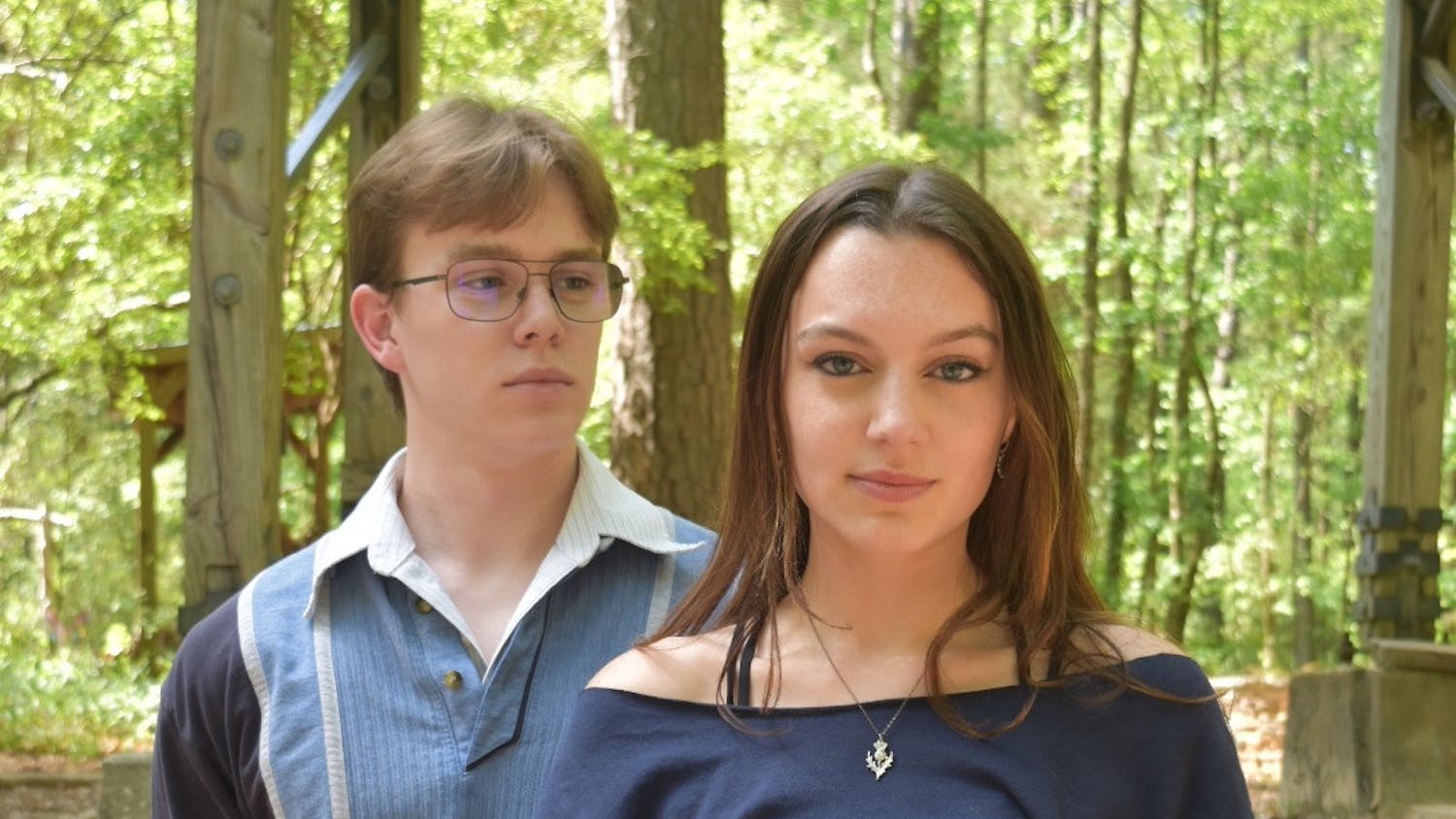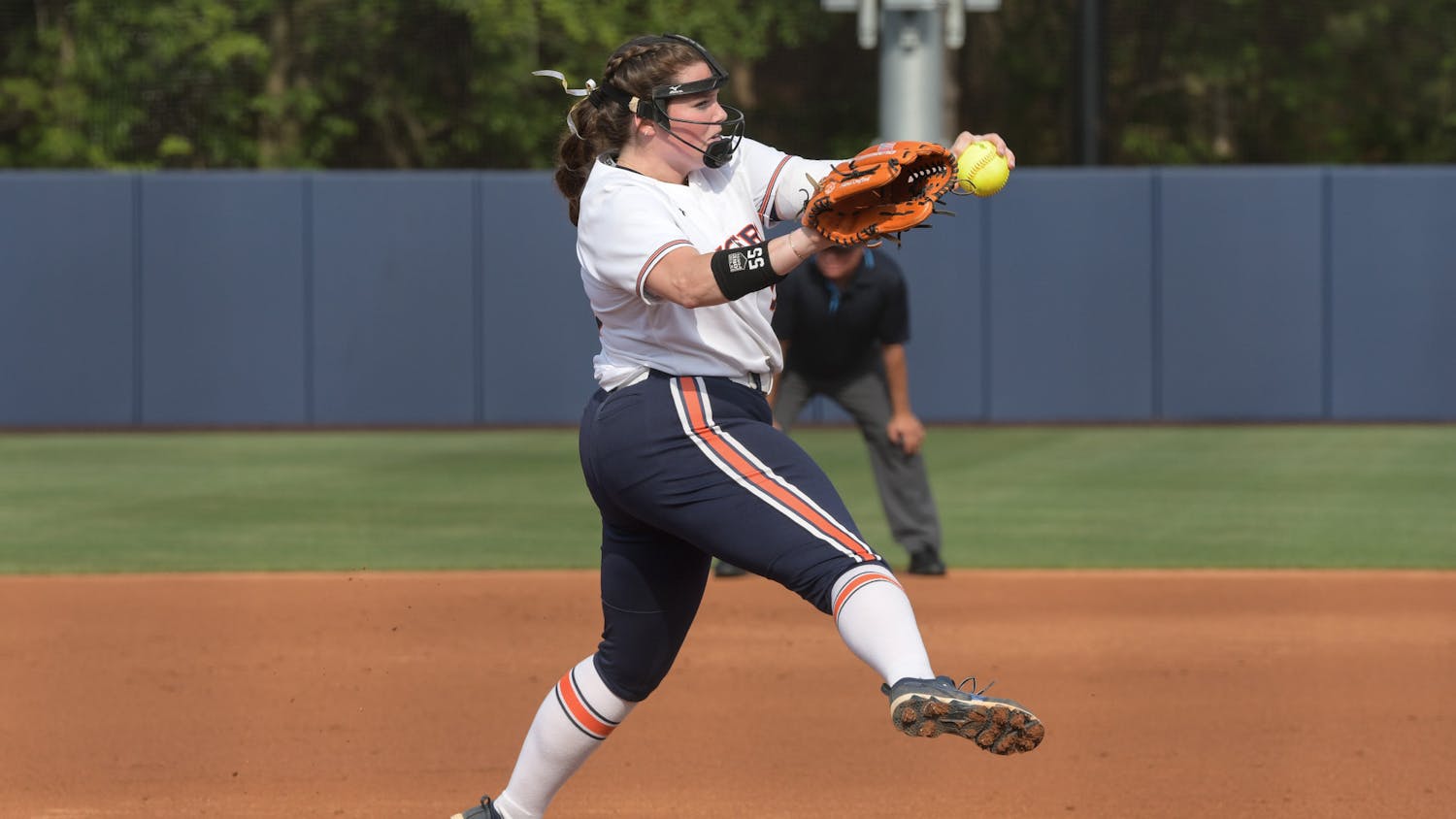Protesting is a freedom guaranteed to Americans under the First Amendment.
Mondra Wright, graduate student, protested Dec. 5, 2014, on the Haley Concourse to get a process in motion.
That process was dealing with her alleged sexual harassment case with the Affirmative Action and Equal Employment Opportunity Office (AA/EEO) against a professor.
Wright said she felt unsafe around a professor when she was in his office during her time as an undergraduate in 2008.
Wright didn’t report the incident when it happened.
“I had so much stuff going on that I never said anything,” Wright said.
Wright, now a graduate student, said she felt a similar uneasiness around the same professor.
After talking with other professors in her department, administrators directed Wright to AA/EEO.
The AA/EEO handles all Title IX cases, such as sexual harassment, sexual assault, dating violence, domestic violence, stalking and retaliation. Duties of the two AA/EEO employees include investigating if complaints have enough evidence to back up the claims.
Wright spoke with AA/EEO Director Kelley Taylor on Oct. 10, 2014.
Taylor did not contact the professor involved in Wright’s case until two months later on Dec. 5, 2014, the same day Wright protested about how long the process of dealing with her alleged sexual harassment was taking.
Since Taylor and Michelle Martin, affirmative action specialist in the same office, are the only employees working in the office at the moment, Taylor said they have to prioritize the cases reported to them.
“If we get a sexual harassment complaint the same day we get a sexual assault case, and the harassment case did not involve any touching, we would try to work on them simultaneously, but work more quickly on the accommodations for the sexual assault case,” Taylor said.
Wright said she feels her case was mishandled because it took so long for her to receive any information about what was going to happen to the professor involved.
“I don’t want students to feel like they are little people in a big system, in a system that is just going to go with the administration and not listen to the needs of the students,” Wright said.
The professor named in Wright’s complaint said Taylor performed a full investigation and found no supporting evidence backing her claims.
“I am completely, completely innocent,” the professor said.
Approximately 50-60 students file a complaint about sexual harassment on campus each year, according to Taylor. Approximately 85-90 percent of those complaints are between students.
According to Taylor, in 2014, sexual assaults of one male and 16 female students and sexual harassments of two males and 21 females were reported to AA/EEO.
“More women students are coming forward every year,” Taylor said. “I don’t think that suggests that we have more problems than we did the year before. I think we have more awareness than the year before.”
According to Taylor, in 2014, there were three student sexual harassment complaints against faculty, but no sexual assault complaints.
If a student reports sexual harassment against a professor, Taylor said the office will meet with the person who filed the report, the professor and any witnesses who may have seen anything pertaining to the incident.
“We investigate by meeting with anyone that can give us relevant information, even if they didn’t witness it,” Taylor said. “Sometimes you can get information like, ‘Well, I saw this person right after it happened, and they were crying and screaming and ran to the bathroom.’ That’s still relevant information because this isn’t court. This is a University process.”
For cases against professors, Taylor said she and Martin make recommendations to the leadership of the faculty or staff person about disciplinary action based on cases that have been dealt with in the past.
Once an investigation between students is conducted in AA/EEO and evidence is found against the accused, the evidence will be directed to the Student Discipline Committee in the Office of Student Conduct, where a committee made up of students, faculty and staff, approved by University President Jay Gogue, make a decision based on evidence given to them by Taylor.
Haven Hart, director of Student Conduct, said members of the committee go through hours-long training sessions with Taylor about Title IX offenses and are not allowed to sit in on a hearing about a Title IX offense if they haven’t received the proper training.
Punishment Process
The victim, according to Hart, determines sanctions given to the accused, although with sexual assault or harassment cases, Hart said Student Conduct will give recommendations for sanctions based on a rubric created by Student Conduct and precedents from past cases.
The person who filed the complaint, who can also be the victim, may suggest sanctions before going to a hearing, such as expulsion from the University.
If both parties in the situation don’t agree with the proposed sanctions, both will proceed to a Student Discipline hearing.
The University acts independently from the criminal system, which means if a student is convicted of sexual assault or harassment by law, Student Discipline can still make its own decision based on the evidence provided by AA/EEO and can decide whether the accused should be punished.
The student is allowed to have someone at the hearing to give guidance, such as an attorney, but the attorney is not allowed to speak during the hearing because the Student Discipline process is not a court of law, according to Hart.
Accommodations
for Victims
After an investigation is started by AA/EEO, Taylor said accommodations are made for the individual who filed the complaint.
Accommodations for students can include a no-contact order, making temporary housing, course and/or work schedule changes.
The primary accommodations Taylor said the office provides are housing and academic related.
“How we accommodate is creative,” Taylor said. “A lot of times, a lot of students don’t have (the accused) in class, but we write the teachers and say what is going on.”
Even if there is not enough evidence to prove a professor or student was committing a Title IX violation, Taylor said accommodations would still be made for the person who filed a complaint.
If there is not enough supporting evidence to prove a professor was involved in the sexual harassment or assault case, Taylor said the Title IX office will still suggest the professor go to educational counseling to learn how to handle these types of situations in the future, but this is not mandatory.
The professor involved in Wright’s case said he followed all of Taylor’s instructions, but did not participate in educational counseling because he said he has taught at two universities for 25 years and didn’t think he did anything wrong.
The professor said this is the first time a student has filed a sexual harassment complaint against him.
Taylor would not comment on Wright’s case because of confidentiality rights granted by the Family Educational Rights and Privacy Act, but said two more staff members would be added to the office, and an email-notification policy may be put in place and become a consistent policy.
Don Large, executive vice president for the University, said he is working with Taylor to add staff to AA/EEO.
“(Taylor) requested two additional staff, and that has been approved,” Large said. “This is a prudent and appropriate request given the evolving federal legislation and expectations.”
The federal legislation, found in “A Dear Colleague Letter,” passed by Congress in April 2011, states if a school does not take a firm stance on handling Title IX offenses, including sexual harassment and assault cases, the institution could risk losing federal funding.
Taylor said she is expecting to hire two new investigators for the office at the beginning of May.
Wright said she hopes the Title IX process will be more effective and timely in the future with more employees working in the office.
“I just want students who have been sexually harassed in any way, like my situation with this particular professor, or any professor, to speak out,” Wright said.
Although Wright has sent emails to Taylor at AA/EEO, she said she has not been informed about the status of her case or if any punishment has been given to the professor involved.
The professor involved in the case is still teaching at the University.
Do you like this story? The Plainsman doesn't accept money from tuition or student fees, and we don't charge a subscription fee. But you can donate to support The Plainsman.



